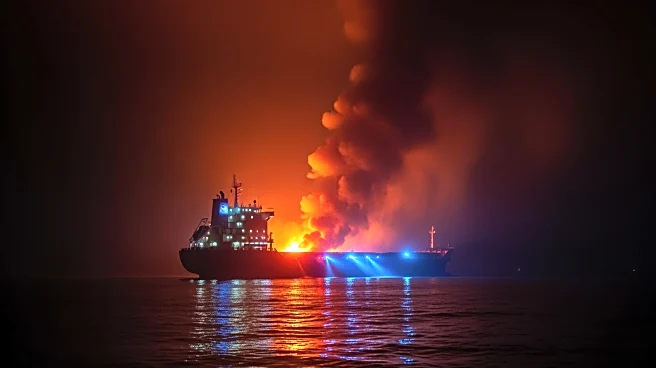What's Happening?
Houthi rebels in Yemen have released five Yemeni United Nations staff members and allowed 15 international staff to move freely within the U.N. compound in Sanaa after detaining them over the weekend. This development follows a series of raids by Houthi security
forces on international organizations operating in rebel-held areas, including Sanaa, Hodeida, and Sadaa. The Houthis have accused these staff members of espionage, a claim denied by the U.N. The release comes amid heightened tensions following the death of Maj. Gen. Muhammad Abdul Karim al-Ghamari, a Houthi military leader, in an Israeli airstrike. The U.N. is engaging in negotiations with the Houthis, urging influential member states like Iran, Yemen, and Saudi Arabia to assist in securing the release of detained staff.
Why It's Important?
The release of the U.N. staffers is significant as it highlights the ongoing challenges faced by international organizations operating in conflict zones like Yemen. The detention of staff members disrupts humanitarian efforts and exacerbates the humanitarian crisis in the region. The involvement of influential countries in negotiations underscores the geopolitical complexities of the conflict, with implications for regional stability. The death of a key Houthi leader in an Israeli strike further escalates tensions, potentially affecting peace efforts and international relations in the Middle East.
What's Next?
The U.N. is likely to continue diplomatic efforts to ensure the safety and freedom of its staff in Yemen. The ongoing conflict and recent military actions may lead to further international involvement, with countries potentially leveraging their influence to mediate and de-escalate tensions. The situation remains fluid, with potential impacts on shipping routes in the Red Sea and broader regional security dynamics.
Beyond the Headlines
The detention and release of U.N. staffers in Yemen raise ethical concerns about the safety of humanitarian workers in conflict zones. The accusations of espionage against international staff highlight the risks faced by those providing aid in politically sensitive environments. The geopolitical implications of the conflict, including the involvement of Israel and regional powers, may influence future diplomatic and military strategies in the Middle East.















